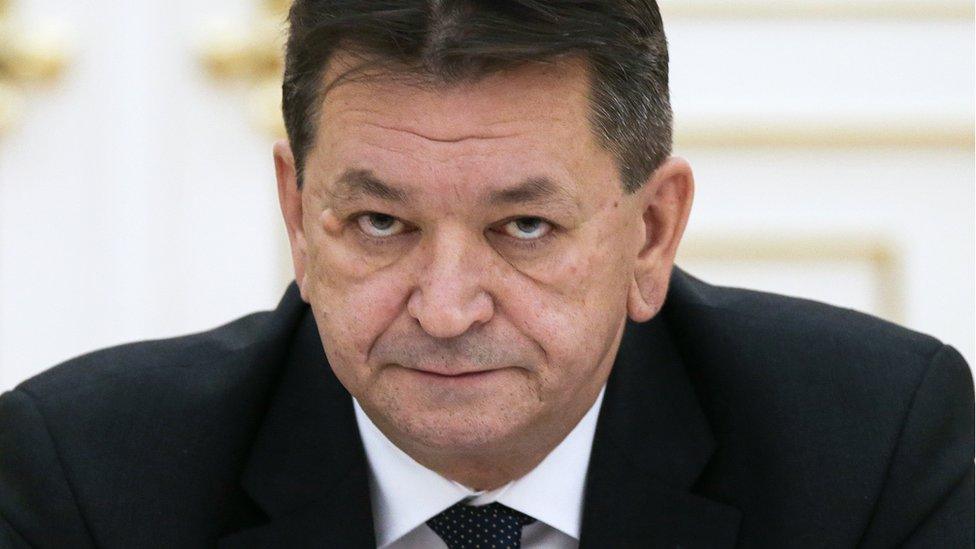Russia Interpol bid: Prokopchuk critics raise concerns
- Published

Russian Alexander Prokopchuk is the frontrunner to become the next Interpol chief
A Russian official is expected to become the new head of Interpol, despite concerns that Moscow has used the agency to target its opponents.
Alexander Prokopchuk, a veteran of the country's interior ministry, is favourite to be elected president at a meeting of Interpol's annual congress.
He is currently one of four vice-presidents of Interpol.
The election follows the disappearance of Interpol's former president Meng Hongwei in September.
China has since confirmed he has been detained and is being investigated for allegedly taking bribes.
Red notice 'abuse'
Representatives from Interpol's 194 member states are meeting in Dubai for the vote.
They will decide between Mr Prokopchuk and another vice-president, South Korea's Kim Jong Yang, but the Russian is considered the favourite.
Although the role of president is largely ceremonial, it still wields influence and the election of Mr Prokopchuk would be seen as a major success for Russia.
But there is growing criticism of his candidacy from human rights groups and officials from other countries who fear his election could lead to an escalation in Russia's attempts to pursue its critics.
Mr Prokopchuk has been accused of abusing Interpol's so-called red notice system - international arrest warrants - to target critics of Russian President Vladimir Putin, while serving as Interpol's Moscow bureau chief.
One group of US senators said electing him would be "akin to putting a fox in charge of the henhouse", while a prominent Kremlin critic said it would be like "putting the mafia in charge".
The UK says it is backing Kim Jong Yang, and has been urged by some British MPs to consider withdrawing from Interpol if Mr Prokopchuk is elected.
"Putting a senior representative of one of the most criminalised governments on Earth in charge of Interpol makes a mockery of the organisation in principle," said Conservative lawmaker Bob Seely.
Lithuania, which regained its independence from Russia during the collapse of the Soviet Union and is now a member of both Nato and the European Union, has threatened to leave Interpol if Mr Prokopchuk is elected.
If you cannot view this article in full, click to launch the interactive content, external.